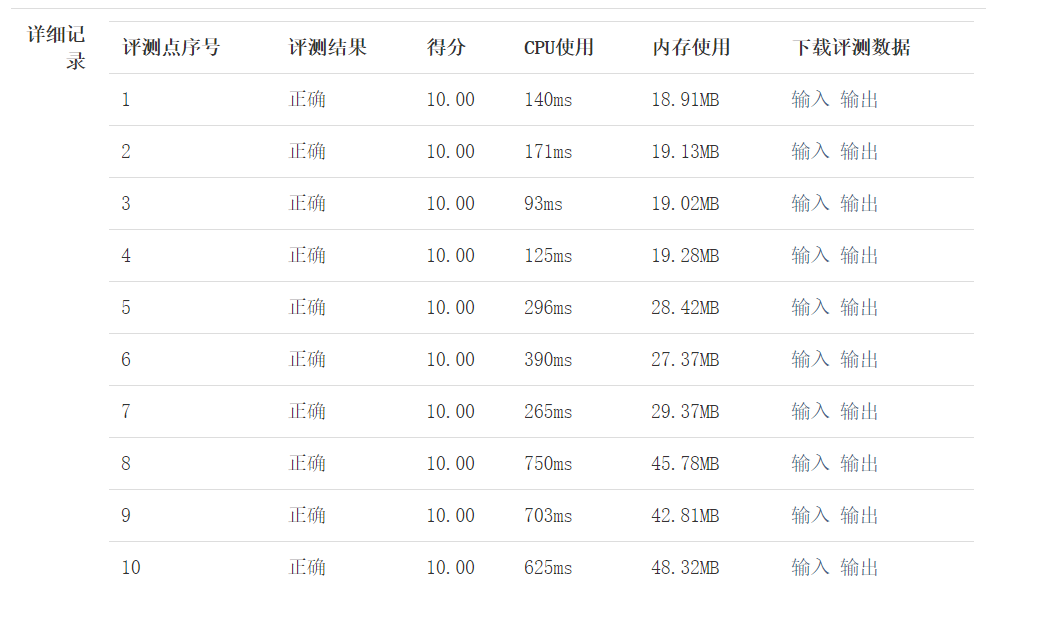Problem description
Analog program calculator, input the instructions in turn, and the possible instructions include
1. Number: 'NUM X', X is a string containing only uppercase letters and numbers, indicating a current base number
2. Operation instructions: 'ADD', 'SUB', 'MUL', 'DIV' and 'MOD', respectively, represent addition, subtraction, multiplication, division, quotient and division, and remainder
3. Base conversion instruction: 'CHANGE K', convert current base to base K (2 ≤ K ≤ 36)
4. Output instruction: 'EQUAL', output the result in current base
5. Reset command: 'CLEAR', CLEAR the current number
The instructions are given according to the following rules:
The number, operation instruction will not be given continuously, and the decimal conversion instruction, output instruction and reset instruction may be given continuously
The first number after the operation instruction indicates the number participating in the operation. And there will be no operation instruction and output instruction between the operation instruction and the number
The first number that appears after the reset instruction indicates the base value. And there is no operation instruction or output instruction between the reset instruction and the first number
Hexadecimal conversion instructions may appear anywhere
During the operation, the intermediate variables are all non negative integers and less than 2 ^ 63.
1035 in capital 'A' Z '
Input format
Line 1: 1 n, indicating the number of instructions
Second n+1 lines: each line gives an instruction. The instruction sequence must start with 'CLEAR' and meet the instruction rules
Output format
Give the results of each 'EQUAL' in turn
sample input
7
CLEAR
NUM 1024
CHANGE 2
ADD
NUM 100000
CHANGE 8
EQUAL
sample output
2040
Answer
import java.io.BufferedReader;
import java.io.IOException;
import java.io.InputStreamReader;
import java.util.Scanner;
//This oj class name must use Main
public class Main {
public static long[] num= {0,0};
public static int hex=10;
public static String op="";
public static long Calcu() {
switch(op) {
case "ADD":
num[0]=num[0]+num[1];
break;
case "SUB":
num[0]=num[0]-num[1];
break;
case "MUL":
num[0]=num[0]*num[1];
break;
case "DIV":
num[0]=num[0]/num[1];
break;
case "MOD":
num[0]=num[0]%num[1];
break;
default:
break;
}
//System.out.println("calculated" + num[0]);
return num[0];
}
public static void Recog(String[] term){
switch(term[0]) {
case "NUM":
if(op.equals(""))
//parseLong(term[1],hex); converts hex base numbers to decimal strings
num[0]=Long.parseLong(term[1],hex);
else {
num[1]=Long.parseLong(term[1],hex);
num[0]=Calcu();
op="";
}
break;
case "ADD":
op="ADD";
break;
case "SUB":
op="SUB";
break;
case "MUL":
op="MUL";
break;
case "DIV":
op="DIV";
break;
case "MOD":
op="MOD";
break;
case "CHANGE":
hex=Integer.parseInt(term[1]);
break;
case "CLEAR":
num[0]=num[1]=0;
op="";
break;
case "EQUAL":
//toUpperCase() output letters above decimal must be uppercase
//toString(num[0],hex) converts a decimal number to a hex string
System.out.println(Long.toString(num[0],hex).toUpperCase());
break;
default:
break;
}
}
public static void main(String[] args) throws IOException {
// TODO Auto-generated method stub
int n=0;
String s=new String();
//Scanner sc=new Scanner(System.in);
//BufferedReader
BufferedReader br = new BufferedReader(new InputStreamReader(System.in));
//n=sc.nextInt(); cannot input with this method, you need to receive "\ n" to stop input
n = Integer.parseInt(br.readLine());
for(int i=0;i<n;i++) {
s=br.readLine();
String[] term=s.split(" ");
Recog(term);
}
}
}


